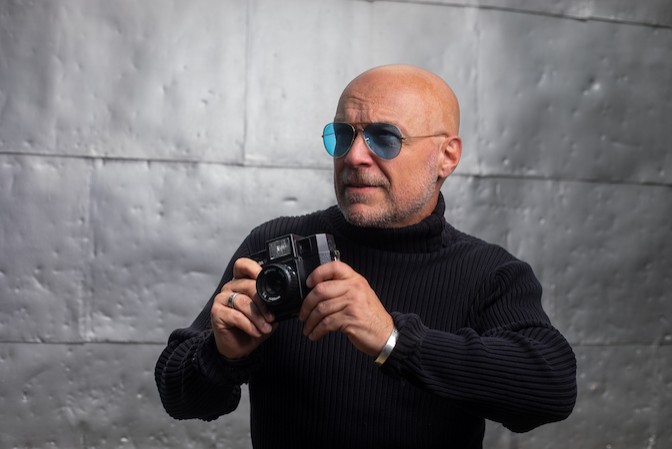The age of convenience has made health slip through people's fingers. Screens have replaced playgrounds, and fast food has become a staple, making millions drift away from habits that shape wellness. Society's disconnect from regular movement and sound nutrition is a crisis hiding in plain sight, which award-winning filmmaker Karl André Talbot aims to tackle with cinematic power.

The internationally acclaimed documentary "INactive, America's Silent Killer," directed by Charles Anderson and produced by Talbot, is an exposé on the silent yet devastating crisis of physical inactivity. The film's impact has been global, earning over 30 awards and 60 nominations, including Best Director and Best Health Film at the World Film Festival in Cannes.
INactive vividly portrays how modern life has pushed movement out of people's routines. It explores the rise of sedentary lifestyles, the removal of physical education in schools, and how childhood obesity has become a full-blown epidemic. Its carefully crafted narratives and expert insights challenge viewers to confront the consequences of a life devoid of physical activity.
Still, for Talbot, it's only the beginning. Building on INactive's momentum, he's preparing for a sequel, a multi-part interactive documentary focusing on action. This upcoming venture is informed by his deepening insights and expert collaborations. While producing INactive, he worked with PHIT America, a national charity with a mission to make America healthier through physical activity, and founded PHIT Canada with a team of medical professionals.
Through these experiences, Talbot discovered that the inactivity crisis is only the tip of the iceberg. It leads to broader issues like poor nutrition, rising mental health disorders, and declining productivity. With the upcoming sequel, Talbot aims to catalyze a global movement for health transformation across three key societal pillars: businesses, schools, and governing bodies. Essentially, the film would offer real-world solutions and pathways for change.
The overwhelming response Talbot received after INactive was released inspired this venture. Experts, educators, and advocates reached out, not only with praise but with programs that were already working in their communities. One of Talbot's collaborators has developed technologies and programs that successfully reintroduce physical activity into children's lives outside the rigid structure of school. "It became clear to me that the problem isn't a lack of solutions. It's a lack of accessible guidance. People want to do something but don't know where to start," he states.
The sequel aims to close that gap. The project will unfold in a modular, template-based format, offering practical roadmaps that individuals, institutions, and governing bodies can adopt based on their needs. One episode will focus on individual and family-level solutions, emphasizing the impact of micro-changes, from active play at home to community sports involvement, and how parents can influence school systems by advocating for daily physical education. Viewers will be offered resources (e.g., toolkits, downloadable templates, and scripts to contact school boards) that can help them spark change in their immediate environments.
Another episode will focus on the business sector. Talbot aims to demonstrate how businesses can take ownership of public health by viewing employee well-being as a strategic investment, complete with reproducible models and workplace wellness policy templates for HR leaders to implement.
There will also be an episode targeting governing bodies. The filmmaker plans to dissect successful programs in countries where schools remain open after hours with the help of volunteer parents, allowing children to play, socialize, and be physically active in safe environments.
Here, the importance of nutrition will also be tackled. Research shows that being active improves the body's natural cravings for better nutrition. Talbot acknowledges that systemic changes are needed. "Right now, it's cheaper to buy junk food than bio or organic produce. That has to change," he says.
"We're witnessing the first generation of youth that could die younger than their parents," Talbot adds. "The consequences are unthinkable. The ripple effects don't stop at health. Economic growth and national health spending will also be affected."
Acknowledging that today's audiences are visual learners with limited time and short attention spans, Talbot intends to create short, impactful sequences optimized for web, mobile, and educational forums, making it easier to spread the message. "I want to make something people watch, feel, and act on, so my movies would become more like tools, with sequences that can be shared as short videos on the web," he shares.
Karl André Talbot's mission is to make INactive's sequel a film every parent wants to show their kids, every teacher wants in their classroom, and every policymaker can't ignore. He states: "At the end of the day, the goal is to give our kids a life better than ours. To do that, we need to leave behind a culture of wellness."
ⓒ 2025 TECHTIMES.com All rights reserved. Do not reproduce without permission.




